BY EVERYNIGHT CHARLEY CRESPO | Trey Anastasio and the Beacon Theatre both announced last week that the Phish vocalist/guitarist will return to the venue for two solo music and storytelling performances on June 22 and 23. The two shows are for coronavirus-vaccinated audiences exclusively. They would be the first full-capacity audience at the venue in 15 months.
Tickets went on sale last week. All ticketholders over the age of 16 will need to be fully vaccinated and provide proof for entry to the concert. Children under the age of 16 may provide proof of a negative antigen COVID-19 test, negative PCR COVID-19 test or full vaccination, and must be accompanied by a vaccinated adult. Additional information and safety protocols are displayed here.
Numerous venue operators in the past weeks have announced summer and fall concerts, all with the expectation that venues will be able to operate at 100 percent capacity. The public is purchasing these tickets. What measures still need to be in place for major concerts to actually happen?
100-percent vaxxed concerts
Governor Cuomo said last week that all venues in New York State have the option of going to 100 percent capacity for fully vaccinated people.
“We’ve authorized 50-50, but the venue can choose to go to 100 percent vaccinated,” he said. The governor referenced Radio City Music Hall, which he announced on May 17 would reopen in June to vaccinated persons only.
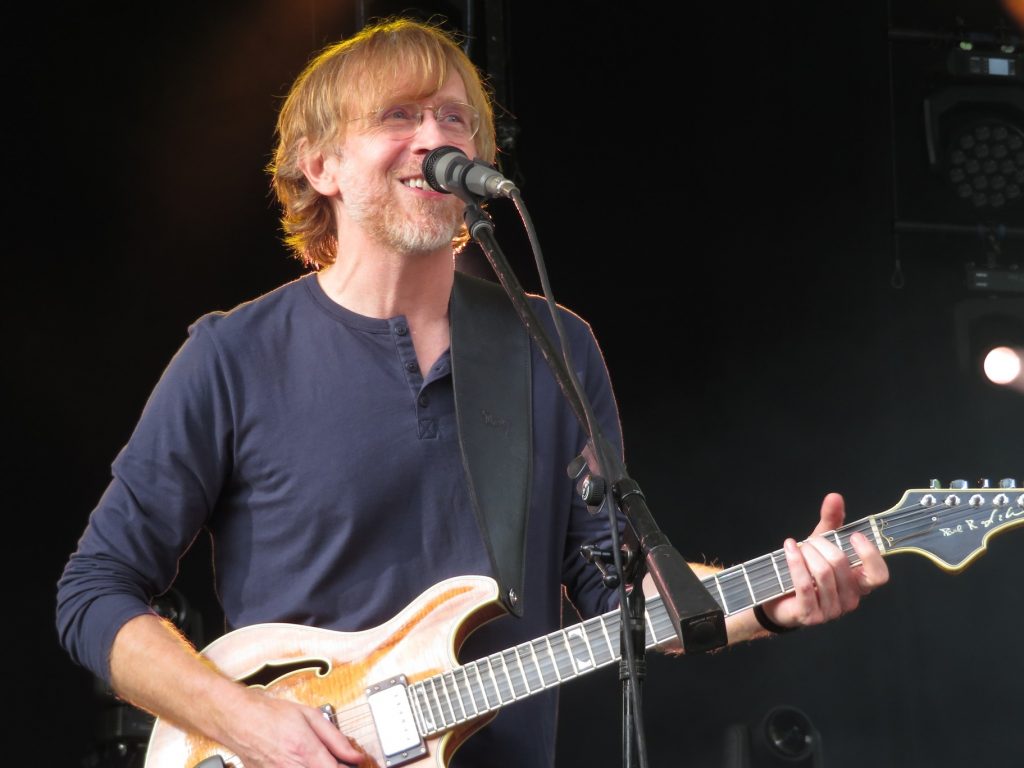
Cuomo outlined how venue operators will want 100 percent capacity, and the only way to get that is for venues to mandate that all ticketholders must be immunized. City Winery NY was perhaps the first concert venue in New York to pioneer the hosting of COVID-free concerts, beginning with the Teddy Thompson concert on Mother’s Day. For shows that were announced before the new policy launched at the end of April, ticketholders must pass a health screening at the door. For entry to all newly announced concerts, ticketholders must produce proof of immunization or a negative COVID test.
So far, the Trey Anastasio shows are the only shows at the Beacon Theatre that are planned to be for fully vaccinated audiences.
Last week, Rockwood Music Hall announced its reopening in June, adding that ticket buyers for all shows must be vaccinated to enter the premises. Rumors say that Terra Blues will reopen in June and will have a similar door policy. Paul Rizzo, the owner of the Bitter End, last week began polling his customers about establishing mandatory vaccinations. At any venue, if all attendees show proof of vaccination, masking and social distancing rules do not need to be enforced. This may be the direction many venues will consider.
Impact of less capacity on concerts
The announcements of new concerts at established venues is looking like a waterfall now, as an increasing number of venues that were closed for 15 months are reactivating. Promoters are booking concerts and announcing ticket sales, but few of the Web sites are specifying what COVID-era safety protocols are in place. Ticket buyers do not know if air-filtration systems have been modified, if social distancing was a consideration in the assignment of reserved seats, or if refunds will be available if infection rates increase later in the year and concert halls are closed again. The objective right now is far more basic, and its axis is simply to revive the revenue flow that was frozen for more than a year: Just reopen the concert halls and sell tickets.
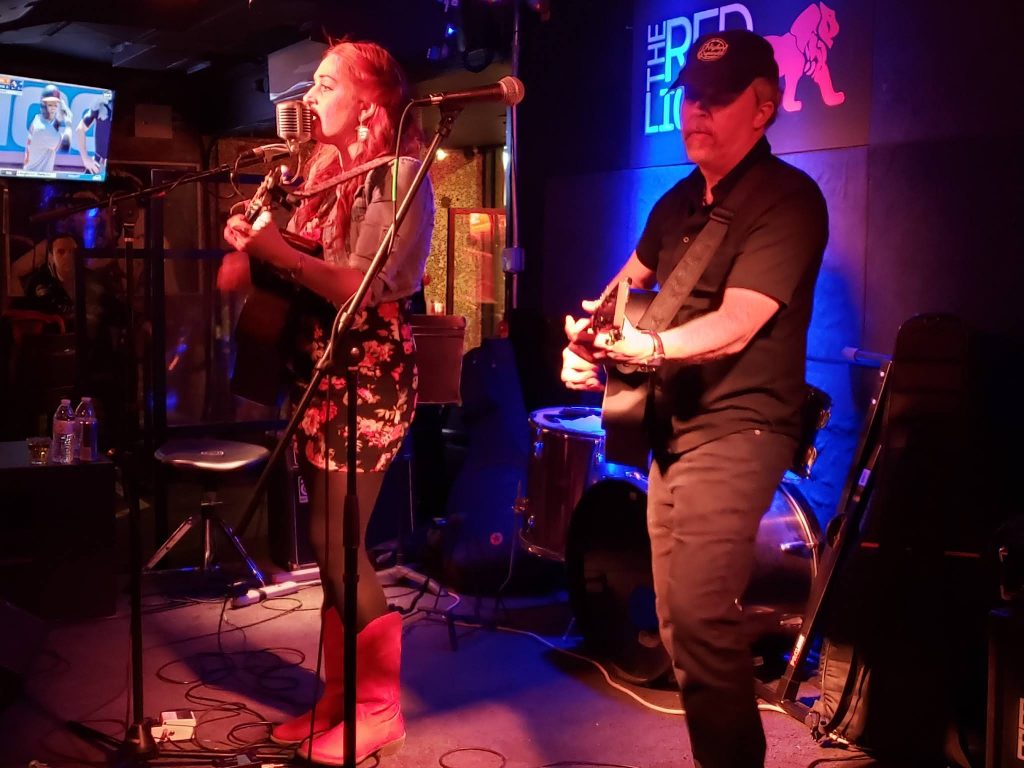
St. venue has a long bar area that normally would accommodate many in standing room. (Photo by Everynight Charley Crespo)
At larger venues, tickets are sold for concerts with the expectation of 100 percent capacity by show time. Anything less than that might lead to a postponement or cancelation of a concert. The economics of the concerts do not factor for social distancing at large venues, as this greatly diminishing the sale of projected admissions and concessions.
The concerts at SummerStage Central Park this year require that all ticketholders be either vaccinated or test negative for COVID within the previous 72 hours. This would apply to the Chris Botti, George Clinton & Parliament-Funkadelic, Lake Street Dive and other shows in the Rumsey Playfield. The announcement of the Dawes concert on Sept. 16 candidly stated that this engagement was assuming full-capacity admissions. The fine print reads, “should health and safety guidelines continue to require more limited seating capacity, tickets may be refunded or modified.”
Mixed populations
Since the beginning of the pandemic closures, venue operators have had to refit their strategies with every governmental update. Based on the relaxation of restrictions in the past weeks, some club owners have strategized how to serve both vaccinated and unvaccinated populations. The Bowery Electric was moving in the direction of having unvaccinated people partitioned in the lower level closer to the stage, with vaccinated people in the mezzanine section.
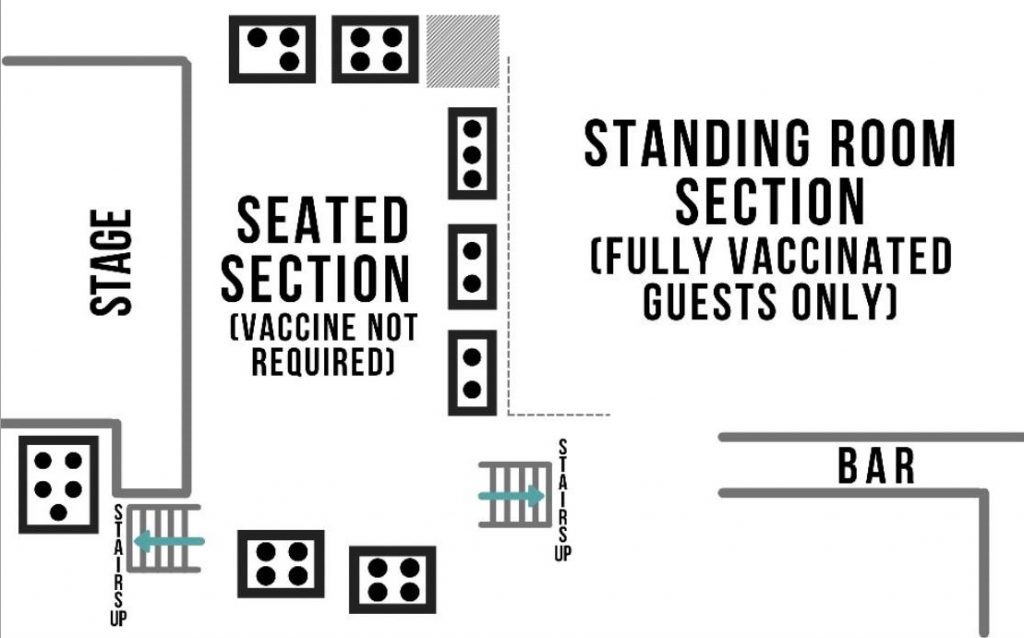
The new idea of having fully-vaccinated audiences can work for concerts whose tickets have not yet gone on sale. In many cases, tickets for upcoming concerts were sold even before the pandemic began. Promoters booked these shows with the expectation of 100-percent capacity. Reserved seats were sold long ago, but not separated by vaccinated and socially distanced unvaccinated sections. Under current governmental regulations, vaccinated and unvaccinated people cannot sit side by side at concerts. What can promoters do?
Recent sporting events at Madison Square Garden and Barclays Center have had unmasked vaccinated and masked unvaccinated sections. Spectators have noted that the pre-mapped isolation only works in the seating areas. Both populations shared bathrooms, concession lines and other areas. The risk of COVID spread in these areas was an unexpected surprise to these spectators.
No doubt, this matter will be addressed soon. Promoters who already sold reserved seats to the public may consider retrofitting their concert seating as well as entry, exit, restrooms and concessions. Venue operators may need to disregard pre-assigned seats and admit vaccinated people to certain sections and unvaccinated persons to other sections.
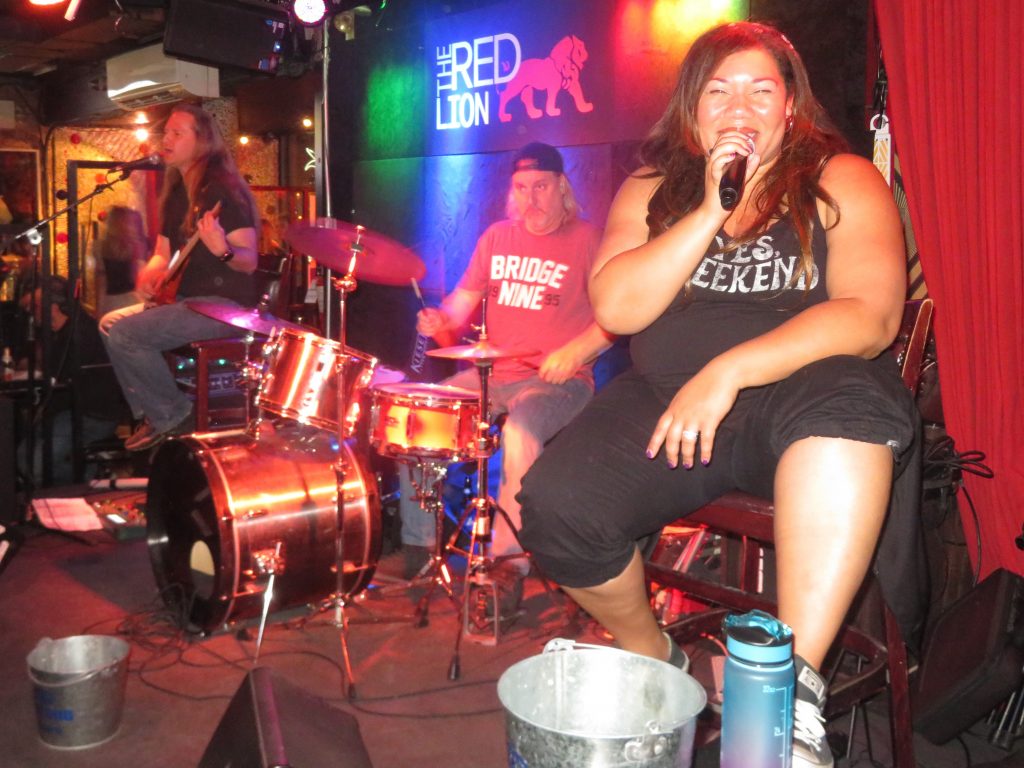
A more radical formula might be to refuse admission and refund ticket money to people who are not vaccinated. Because the unvaccinated require social distancing, the loss of an unvaccinated person possibly can permit three vaccinated people instead. Clearly, this replacement mode would increase sales of admissions and concessions.
Ban on standing room at concerts
When speaking of smaller entertainment venues, Cuomo seems to be thinking in terms of theater or restaurant settings, not concert venues. Currently, standing room is not allowed in any size venue. All customers at theaters, restaurants and bars in New York State must be seated
The ban on standing room is perhaps the last obstacle that threatens the slate of concerts that were announced last week. Many concerts rely on a majority of the audience to be standing in order for the venue to achieve sustainable revenue. From large to small, Terminal 5, Brooklyn Steel, Webster Hall, Irving Plaza, the Brooklyn Bowl, the Music Hall of Williamsburg, the Bowery Ballroom, the Knitting Factory, S.O.B’s, Mercury Lounge and countless other venues were designed to have crowds standing closely throughout the majority of the open space.
Due to the pandemic, Arlene’s Grocery, the Bowery Electric and Café Wha? have placed tables and chairs where their standing room used to be. The addition of furniture significantly reduced the maximum capacity at these venues. In some cases, reduced capacity has raised the price of tickets, as one person now makes up for what would have been two or three admissions in the past.
The lingering prohibition of standing room has not been sufficiently addressed by the governor. If this regulation is not repealed, concert promoters may not reach the ticket sales needed to cover costs. As a result, these concerts may be rescheduled or canceled.
Finally, dance clubs may be the last venues to reopen. Brooklyn Mirage and Webster Hall have booked live dance events, but Lavo NY and Marquee have not made any announcements yet. These venues cannot operate as sit-down operations.
The New York State Restaurant Association and the New York City Hospitality Alliance continue to lobby the state to allow standing room in bars, clubs and other entertainment establishments. There is no telling when the state will respond to these requests.
For more of Everynight Charley Crespo’s coverage of the city’s live music scene, check out his blog at The Manhattan Beat.

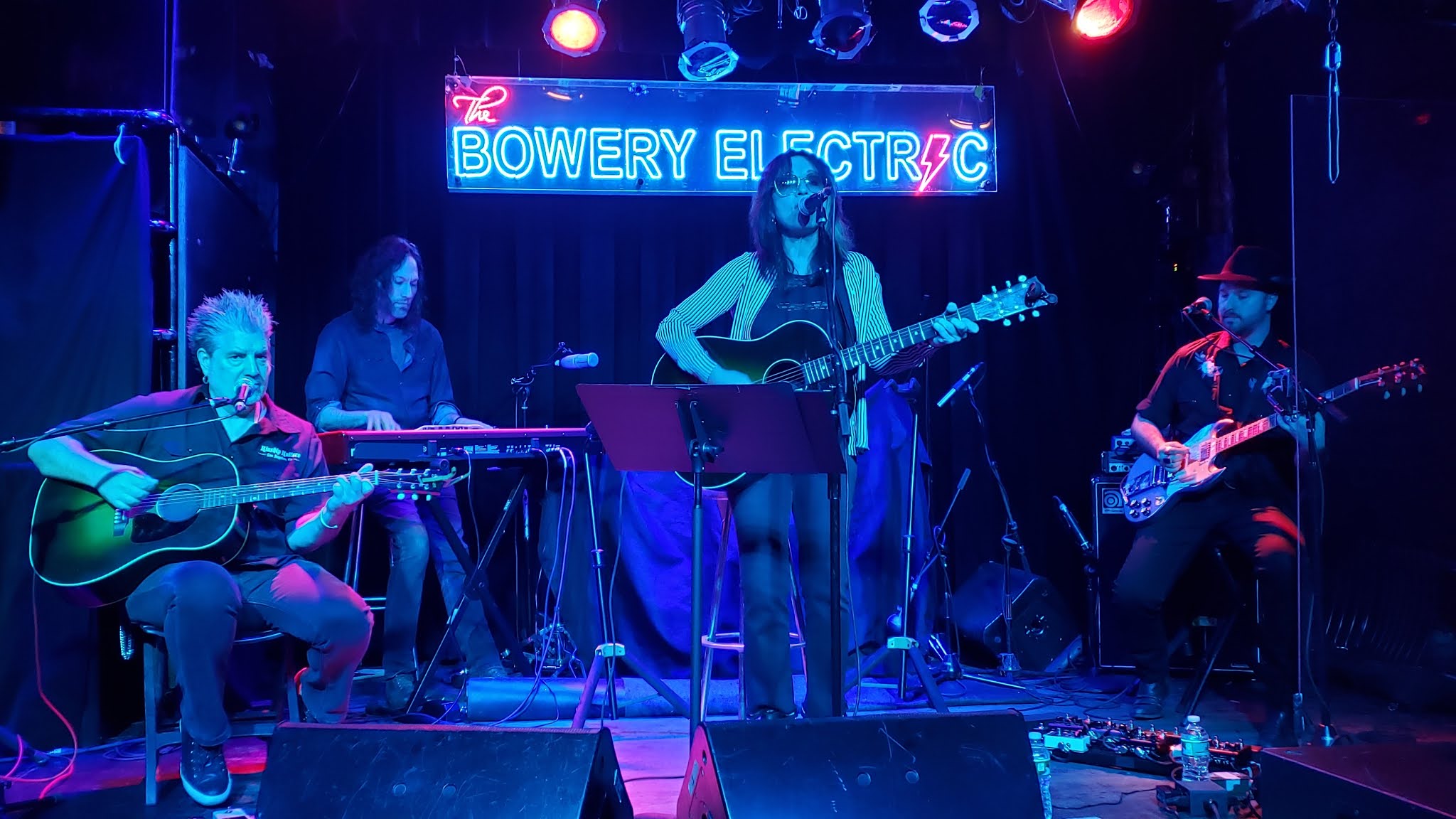
Be First to Comment